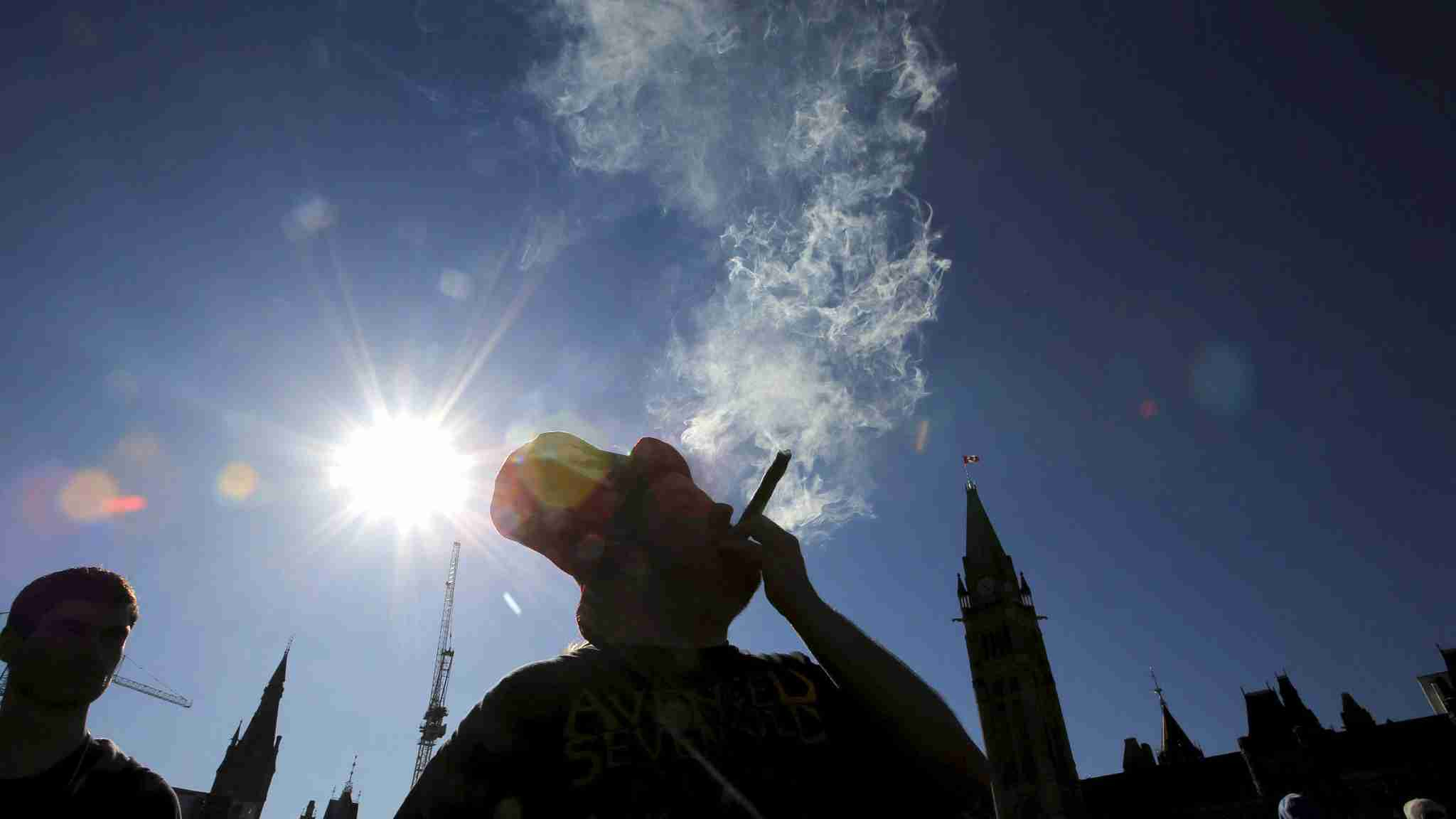
Business
15:32, 17-Oct-2018
Can legalizing cannabis light up Canada's economy?
Updated
15:25, 20-Oct-2018
CGTN

Cannabis is set to go legal in Canada on Wednesday, signalling the start of a new billion-dollar industry that should boost jobs, attract investment and create a new source of tax revenue for authorities.
In just the past year, the market capitalization of firms including
Canopy Growth and Tilray has increased fivefold, to a total of more than 10
billion US dollars on the New York stock market.
And with significant know-how gained since
Canada's legalization of medical marijuana in 2001, others including Aurora and
Aphria are making inroads abroad as more and more foreign markets allow
therapeutic cannabis use and research.
Beverage makers and pharmaceutical
companies are also partnering in the sector, hoping to develop new products
infused with THC or cannabidiol (CBD).
Constellation Brands, the North American
distributor of Corona beer and Robert Mondavi wine, recently invested about five billion Canadian dollars (3.8 billion US dollars) in Canopy Growth for a 38 percent stake in the
company.
Soft drinks giant Coca-Cola is looking into using CBD, the
non-psychoactive molecule in cannabis believed to provide health benefits, as an
ingredient in some drinks.
Experts like John-Kurt Pliniussen, a marketing
professor at Queen's University in Kingston, Ontario, are also predicting a bump
in tourism worth several billion dollars, citing as examples Amsterdam and a
handful of US states where pot is legal.
"The same can happen in Canada, because
one of the things we have going for us and that no other country in the world
has, is the name of our country -- it is almost spelled very similar to
cannabis," Pliniussen told AFP.
"And so you could have Canatourism -- from a
marketing point of view, it lends itself very well."
Rules on the sale of cannabis will vary across Canada's 13 provinces and territories, with certain areas initially only selling it online rather than in physical stores.
In the meantime, an
investor frenzy is fueling mergers and acquisitions, with 48 deals worth a total
of 5.2 billion Canadian dollars (four billion US dollars) announced in the first six months of this year alone,
according to Price Waterhouse Cooper (PwC).
The consolidation will continue
after legalization, says PwC, as an "expected oversupply takes its toll and
forces undercapitalized players into bankruptcy" and firms "look to fuel further
growth by tapping emerging foreign medical markets."
Economic high
Nearly five million Canadians or 16
percent of the population consumed 773 tonnes of cannabis in 2017, mostly for
recreation, paying an estimated 5.5 billion Canadian dollars (4.2 billion US dollars) to buy bud, according to the
government statistics agency.
The number of consumers is expected to increase
slightly after legalization, but spending is predicted to remain the same,
Statistics Canada said in a recent report.
Mario Harel, the president of the Canadian Association of Chiefs of Police, told the New York Times last November that the black market for cannabis was "an eight billion dollar-a-year economy," which he didn't expect "to fade away" in the wake of legalization.
Further growth is expected from
derivative products like edibles, cosmetics and e-cigarette products containing
pot, which will be allowed starting in 2019.
But there is disagreement among
forecasters on just how much of a boost the new industry could give Canada's
economy.
According to the TD Bank, cannabis will push up economic growth 0.9
percentage points in the fourth quarter to hit 2.9 percent. But the government
statistics agency expects the new cannabis industry to have at best a "minimal
impact" on growth in Canada.
And according to Benoit Durocher, a senior
economist with Desjardins Bank in Montreal, it will be a drop in the bucket for
this G7 nation's massive and highly diversified economy.
"Given the small size
(of the sector) relative to overall GDP (which is close to two trillion Canadian dollars), the
impact on growth will be very small or no impact at all," Durocher said.
(With inputs from AFP)

SITEMAP
Copyright © 2018 CGTN. Beijing ICP prepared NO.16065310-3
Copyright © 2018 CGTN. Beijing ICP prepared NO.16065310-3